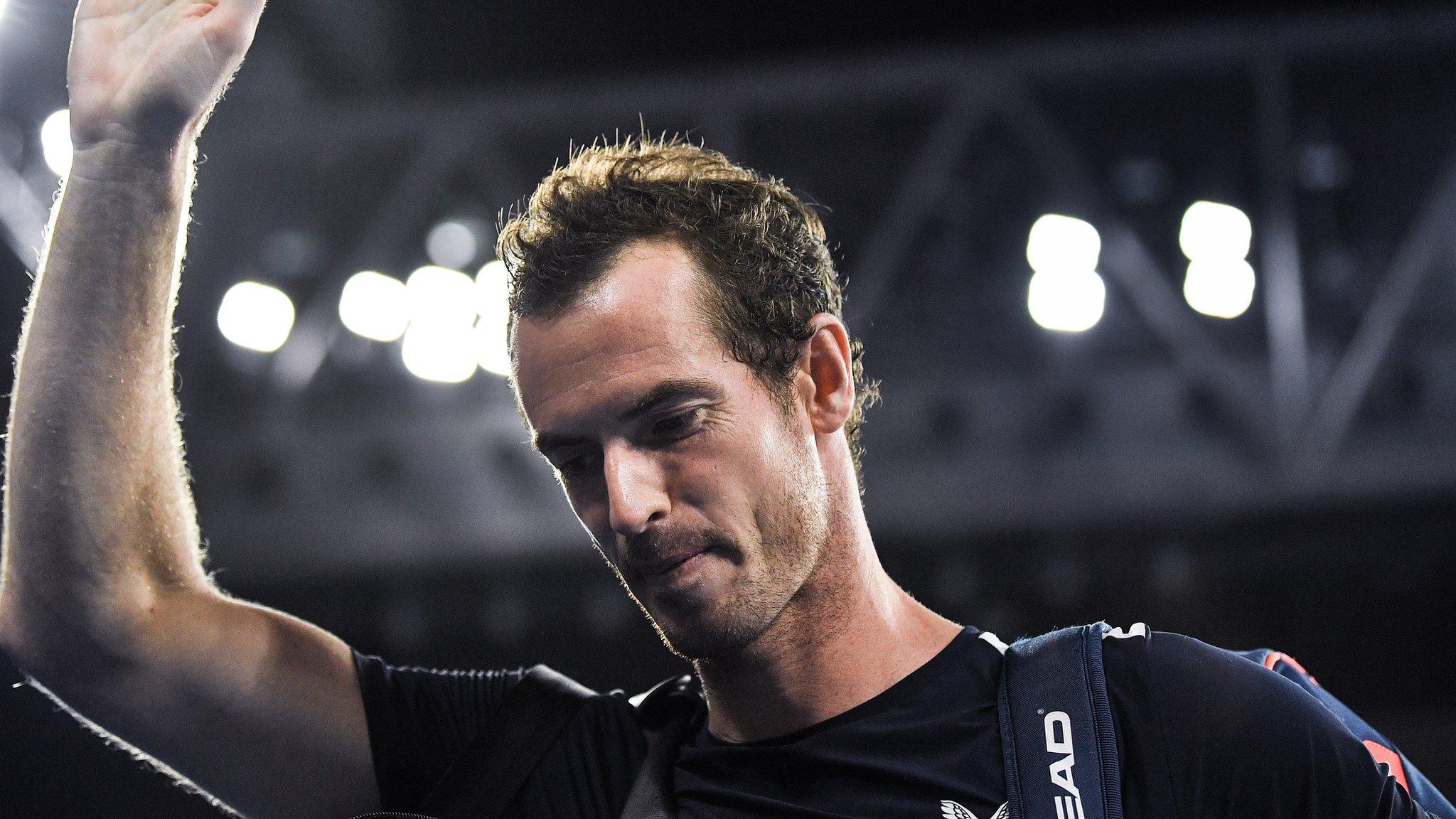What will Andy Murray be worth in retirement?
- Published
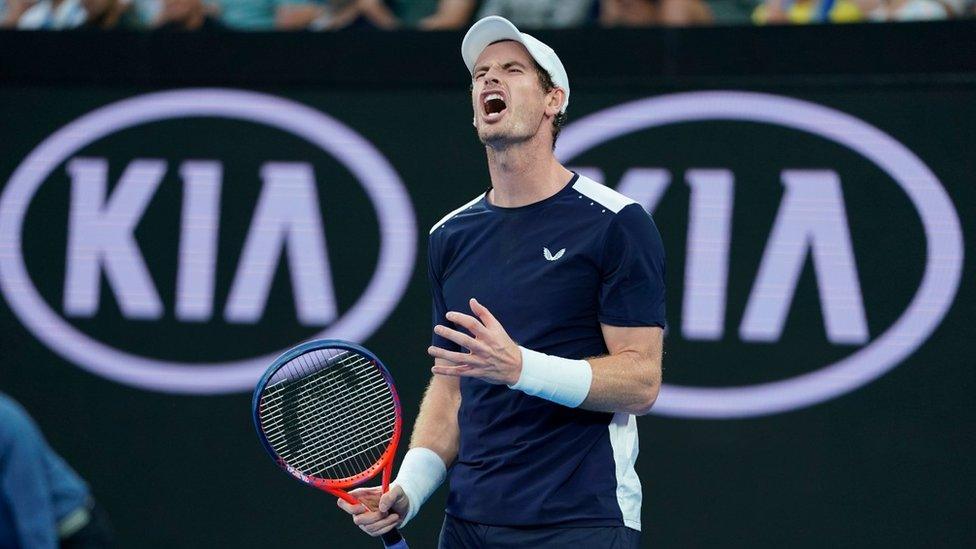
As Andy Murray's retirement moves a step closer following his defeat by Roberto Bautista Agut in the Australian Open, the tennis star remains poised to continue making as big an impact off court as he did on it.
With a burgeoning range of business interests the Scot - never one to shirk speaking his mind - has the power to remain vividly in the public consciousness whichever route he chooses to go down.
There is talk of him potentially moving into the world of politics or media analysis, while current business interests include property ownership, backing UK start-up firms and talent representation.
'Strong legacy'
But one lucrative sphere which will provide a huge chunk of his post-playing earnings will be that of brand endorsement.
A number of major sports stars, from footballer David Beckham, to golfer Greg Norman, and basketball stars such as Michael Jordan and Magic Johnson have shown it is possible to continue earning strongly through the selling power of their personality and sporting legacy.
Andy Murray loses possible farewell match
Did we all retire Murray too soon?
Murray set to have statue at Wimbledon
His career prize money ranks fourth all-time among male players, behind his three eternal rivals from the so-called "Big Four" players of his generation - namely Roger Federer, Novak Djokovic and Rafael Nadal.
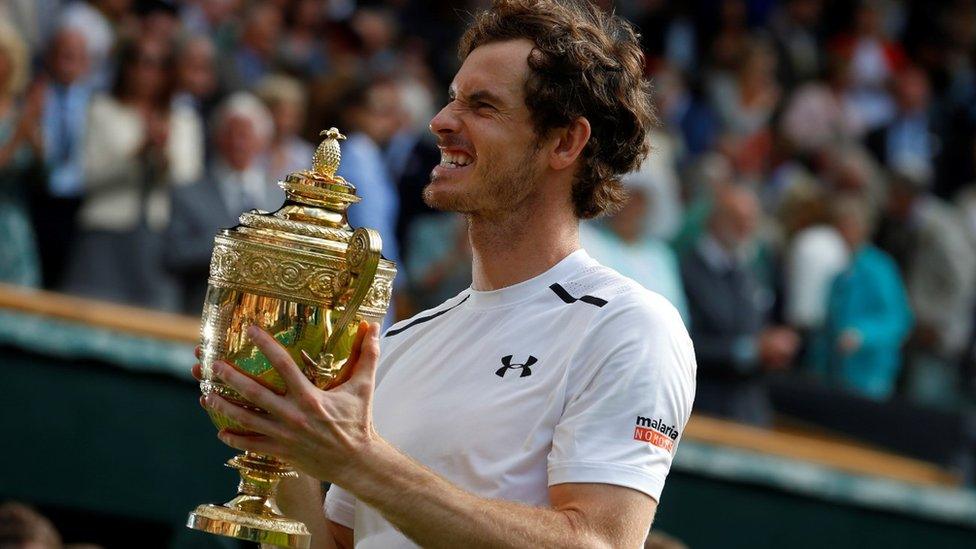
Murray picked up his second Wimbledon men's trophy in 2016
According to US business bible Forbes, Murray will end his playing days with at least $165m (£129m) in career earnings, with prize money making up just $61m, and the bulk - some $100m - coming from endorsements, bonuses and appearance fees.
Over the years he has been associated with a number of major firms, including Adidas, Under Armour, Head, Jaguar, Standard Life, Highland Spring, Robinsons, Royal Bank of Scotland, Fred Perry and Tag Heuer.
And Murray's rough-round-the-edges personality is an asset which industry observers believe he can continue to use as a means of generating income when he hangs up his racquet.
'Authentic personality'
"He is definitely different from the other top players," says brands expert Anastasia Kourovskaia, who has followed the 31-year-old's tennis and commercial career closely.
"He has already created a strong legacy, one that has enabled him to keep his brand presence alive when he was fighting injury over the past 18 months.
"The authenticity of his personality is his main asset. A lot of people are changed by success, but he is consistent. It is a fantastic quality from a marketing point of view."
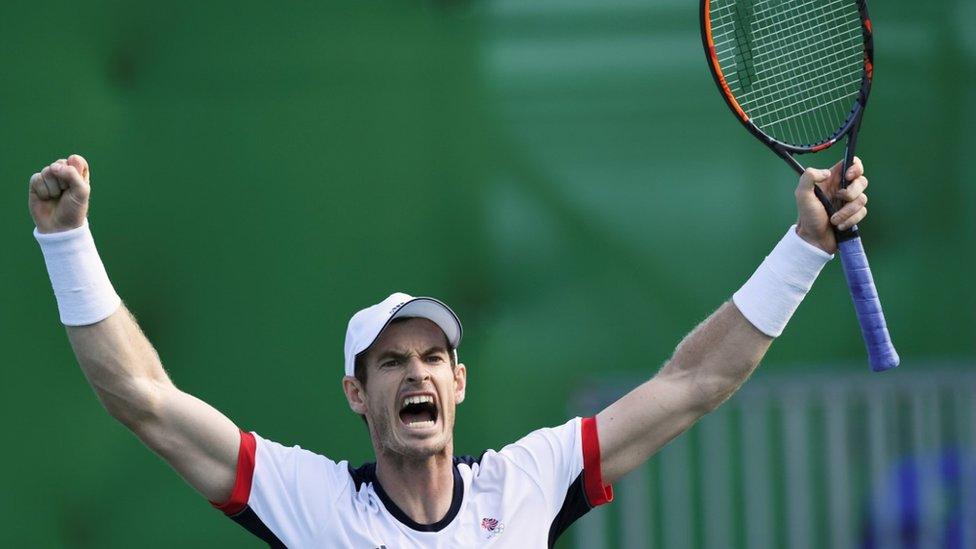
Murray has 'fantastic qualities' that firms can use, experts say
She says while he will not reach the same earnings level in retirement, there will still be companies looking to be associated with the three-time Grand Slam winner.
Ms Kourovskaia says: "He has a great opportunity for leveraging his brand name when he stops playing, but in a way that suits his personality.
"He will not be a David Beckham of British tennis, nor a Roger Federer - he will never be a global icon as they are. He has always been an 'outsider', whose success has been greatly assisted by his grit and doggedness.
"From a marketing view he occupies a very tight niche - as long as he retains the same qualities and does not look to acquire a more glamorous image."
Murray's exit at the 2019 Australian Open in Melbourne, an event which could become the swansong of his career, saw him wearing British sportswear brand Castore.
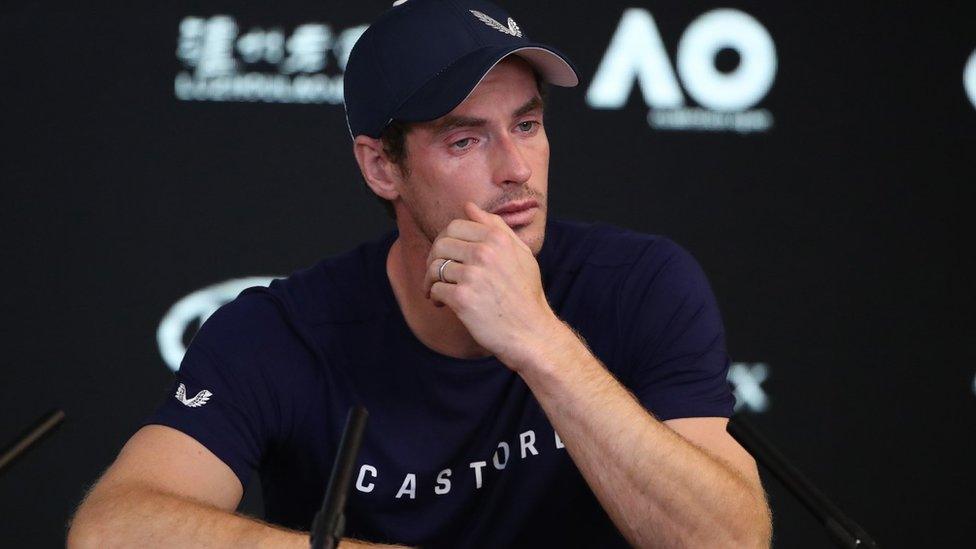
The Scot's latest commercial deal was unveiled at a teary media conference
The Scot's new sponsorship emerged over the weekend, where he held a teary news conference - wearing Castore's Johansson T-shirt and Ghost Cap - stating that he would be retiring from tennis this year after struggling with a hip injury.
Castore replaced US firm Under Armour, which Murray had been with since signing a four-year deal in 2015.
"He needs to choose brands that highlight him as an outsider, which is why the Castore deal was bang on," says Ms Kourovskaia. "He will be worth much more to a niche brand seeking to make, or build, exposure.
"Castore is a British brand which has a high priority in widening its exposure, which is why it is a perfect deal for both parties," she says.
'Supporting entrepreneurs'
Murray has won 45 career titles, including the trio of Grand Slams, and also won two Olympic singles gold medals.
His peak earnings year was 2016 when he won nine titles, including Wimbledon, and led the ATP prize money chart with $16.3m.
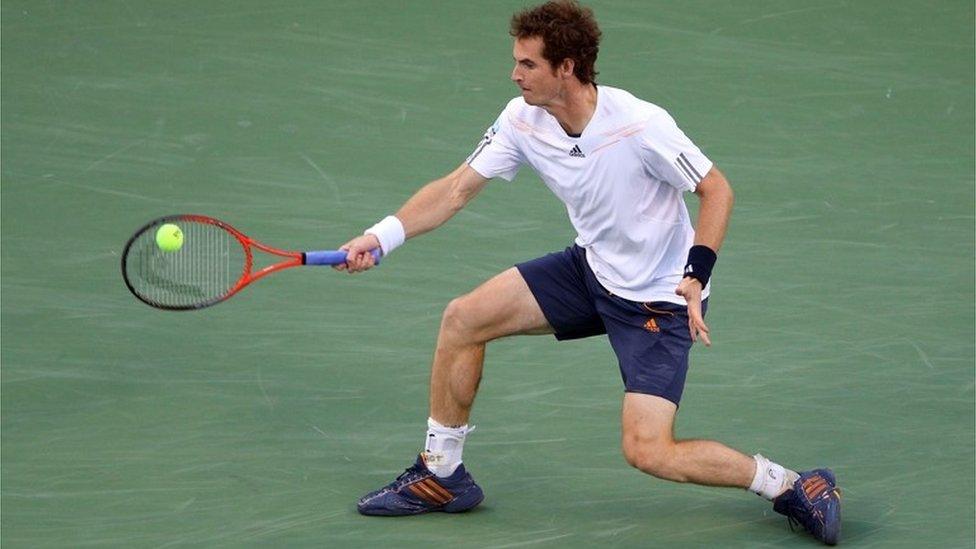
Murray, who won his first major in the US in 2012, wants to make tennis more accessible
In recent years, Murray has also moved outside the mainstream endorsement field, and invested and partnered with equity crowdfunding platform Seedrs in 2015. It focuses on business and technology start-ups, and currently has stakes in more than 30 ventures.
He has in the past said that "giving recognition and support to British entrepreneurs is important to me".
Last year he invested in Deuce, a new start-up app aimed to make tennis more accessible and affordable. It helps players find courts and coaching sessions around the UK.
Simon Chadwick, professor of sports enterprise at Salford Business School, says: "While these investments may be a small proportion of his total income, and while they also may provide a potential future revenue stream, I see them as being part of an overall strategy to market Murray as a 'people's man' after his playing career.
"He is good with kids, and he is an enlightened commentator on things like gender issues, so I see these investments in start-ups, including ones to make tennis more accessible, as part of his brand positioning."
Meanwhile, property is another commercial interest. The 31-year-old bought Cromlix House hotel near his home town of Dunblane in 2013, turning it into a luxury venue.
'Strong convictions'
Also in 2013 he set up his sports management agency, 77, with business advisers Matt Gentry and Gawain Davies and has signed up a number of young athletes, among them Aidan McHugh and Katie Swan from the emerging pool of young British tennis talent.
And although it is unlikely that he is to become a globetrotting coach to other players, opening his own academy could be another route to go down.
"He has already inspired the current generation of emerging British tennis players, so in some ways this sporting legacy is in place already," says Ms Kourovskaia.
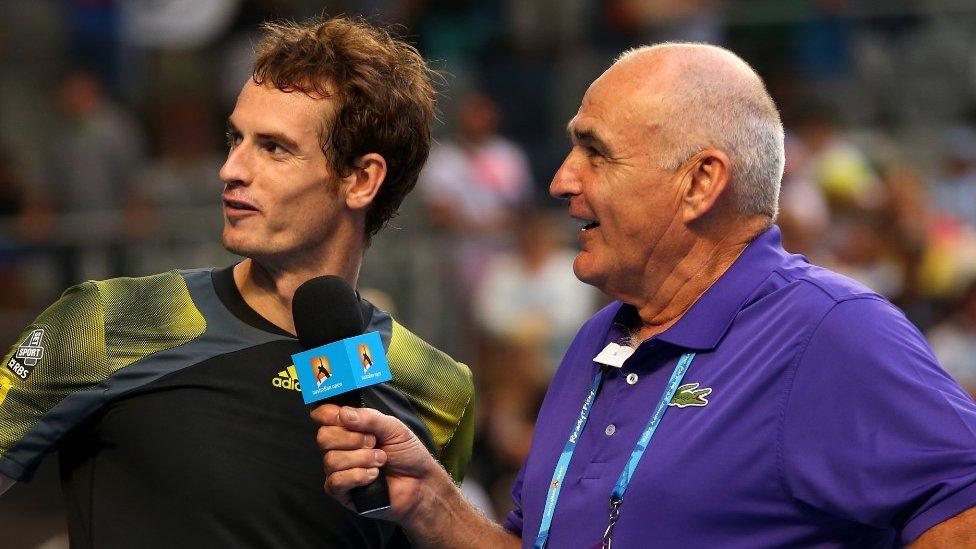
A future as a tennis analyst in the media is another potential career path for Murray
"But opening his own academy is definitely something he should consider, as it could only benefit him as a brand, and ultimately the country if new British players came through from it."
Meanwhile, she says should the father of two girls - who has a dry sense of humour and has supported causes such as women's rights and Scottish independence in the past - go down a media or political route then his forthright outlook is an asset.
"People like him for this, and it does not raise eyebrows as it might in, say, someone like Nadal. His strong convictions and strong views are also qualities that can be leveraged for him as a brand."
- Attribution
- Published14 January 2019
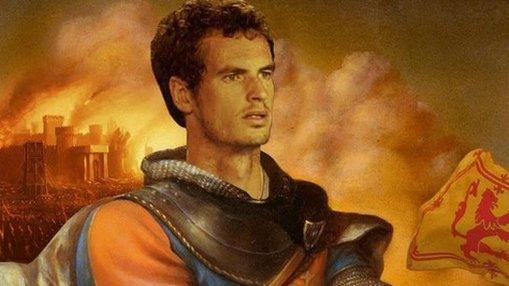
- Attribution
- Published14 January 2019
